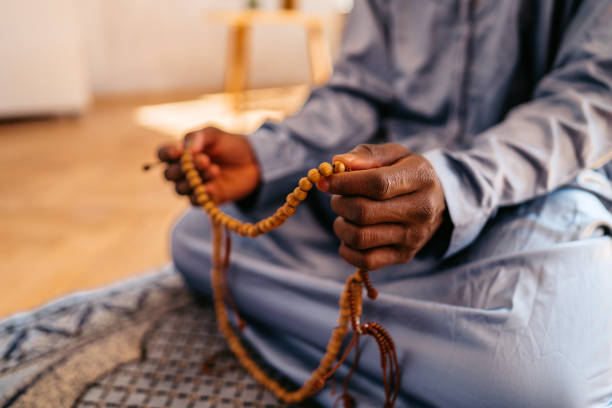By: Dr. Huseyn Zakaria
We begin with a divine truth that sets the highest ethical boundary for a polygynous marriage. The Holy Qur’an declares:
{And you will never be able to be equal between wives, even if you should strive to do so, so do not incline completely [toward one] and leave her [the other wife] hanging [in the air].} (An-Nisā’: 129)
This verse forms the cornerstone of justice in marriage. It releases the husband from the impossible demand of achieving emotional equality, the feelings of the heart, yet it firmly binds him to the duty of outward, practical justice in matters within his control: time, maintenance, and respectful attention.
To take on more than one wife is not for the faint-hearted or those led by fleeting passions; it is a sacred spiritual discipline, demanding maturity, compassion, and unwavering self-restraint.
A Sister’s Question, Born of Faith
Not long ago, a sister reached out with a quiet but sincere concern. She is a woman of deep faith, navigating the delicate beauty and challenges of a polygynous marriage. Her husband, as is often the case, would sometimes stop by during the day, not her designated “turn” for deliberately a longer stay, and their affectionate moments would occasionally lead to intimacy.
Though she cherished her husband deeply, a thought began to trouble her heart: Was this pleasing to Allah, or had they unintentionally slipped into something disapproved?
Her question was not one of blame, but of faith, the sincere desire to ensure that her marriage remained pure in the sight of her Lord. Such reflection, I must say, is itself an act of piety.
The Crux of the Matter: Justice and the Right of Turn
In polygynous marriages, Islam’s emphasis on justice (al-ʿadl) is a divine mercy designed to protect the dignity of every wife. The Qur’an reminds us:
{If you fear that you will not be able to deal justly (with them), then only one.}
(An-Nisā’: 3)
The clearest manifestation of this justice is found in the nawbah, or the rotation of turns ensuring equal division of time, particularly the overnight stay. The night, by its nature, is reserved for rest, companionship, and intimacy. The daytime, however, is more flexible a period for ordinary interaction: checking in, delivering provisions, or sharing brief conversations.
Yet, where does intimacy fit within this division?
According to the consensus of scholars across the four main Sunni schools of law, intimacy outside the rightful turn is generally impermissible. It is viewed as a form of injustice (ẓulm), for it converts an emotional preference into a physical imbalance, breaching the Qur’anic injunction against leaving one wife “hanging.”
The Nuance of Time: Night and Day
Islamic law recognises the distinction between night and day in this matter, yet maintains a delicate balance of caution and fairness:
At night: Breaking the appointed night for intimacy with another wife is a grave violation, as it robs the rightful wife of her emotional security and designated time.
During the day: While brief visits are permitted for necessary reasons, allowing intimacy during such visits without prior consent, turns what might seem an innocent gesture into an act of inequity. The outward act becomes evidence of inward partiality.
A Look Through the Four Schools of Thought
Let us briefly examine how the four classical schools address this sensitive issue:
The Ḥanafī School – Justice in the Night
Intimacy outside the rightful turn is prohibited (ḥarām), for it undermines the principle of fairness. The husband must compensate the deprived wife by granting her an equivalent time in return.
The Shāfiʿī School With Consent and Necessity
Daytime visits are permitted only for brief, legitimate needs — but not for intimacy, unless the co-wife has explicitly consented. Without such consent, it remains impermissible.
The Ḥanbalī School – Upholding the Schedule
Intimacy outside the scheduled turn, whether by day or night, is strictly forbidden. Compensation is required to restore balance and justice.
The Mālikī School – The Conscientious Protector
The Mālikīs adopt the most cautious view: both day and night intimacy are prohibited without prior permission. This stance reflects profound sensitivity to the wife’s inner peace, recognising that even seemingly harmless acts can breed jealousy, insecurity, and distrust.
The Principle of Compensation
Where injustice occurs, the remedy prescribed by scholars is compensation (qaḍā’). The husband must restore what was taken, typically by granting the wronged wife an equal share of time.
This compensation is not a fine, but a restoration of balance, reaffirming that what was violated was not the heart’s inclination, but the tangible right to time and attention.
A Compassionate Conclusion
To our sister who asked this question: your mindfulness and sincerity are acts of worship in themselves. You sought clarity not out of doubt, but out of love for your faith, and that is a mark of true devotion.
And to husbands: remember that justice in polygyny is not an option; it is a divine command. While Allah, in His mercy, does not hold you accountable for the leanings of your heart, He will indeed hold you accountable for your actions.
The Prophet ﷺ warned:
“Whoever has two wives and inclines to one of them will come on the Day of Resurrection with half his body leaning.”
(Abu Dāwūd 2133)
So, let every husband be conscious of his covenant before Allah. Seek her consent, maintain transparency, and let fairness be the rule of your heart and household.
In this way, love becomes balanced, justice becomes lived, and none are left feeling forgotten. Thus, we fulfil the divine guidance:
{…so do not incline completely [toward one] and leave her [the other wife] hanging [in the air].} (An-Nisā’: 129)
Author’s Note:
Dr. Huseyn Zakaria is an Islamic scholar, researcher, and educator with over four decades of experience in Qur’anic scholarship, marital ethics, and contemporary Islamic jurisprudence. He is committed to promoting balanced, compassionate, and Sharī’ah-grounded understanding of family life in Islam.






Leave a Reply